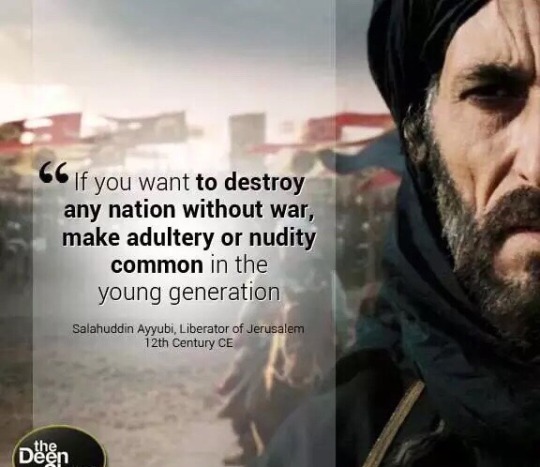Photo

What does this world mean to you? Be honest and keep it to yourself, there is no judging here.
At the end of this story, I want you to reflect and think about how you answered this question. If it stings, that’s a sign we have to repent and check more of our intentions and actions. in sha Allah. _____ This story is about a sahabi who was known as the flower of the Quraish because of him being considered as the most handsome, charming and youthful looking amongst them.
He was known as Mus’ab Ibn ‘Umair Radiyallanu Anhu. You might have heard about his bravery during the battle of Uhud and the moving story of his martyrdom but this story is not about that highlight of his life. More than that story, he was known as the first convoy of the Messenger of Allah ﷺ - yes, the story of him being sent to Madinah to spread Islam is so beautiful that it needs to be narrated in another article. in sha Allah.
I want to focus more on the way he left the luxuries of his life for the sake of Allah. Mus’ab RA came from a very wealthy family and grew up with the luxuries of life that he became one of the jewels of Makkah’s assemblies and talk of the ladies of Makkah. Indeed, he was truly pampered by his parents - until he found Islam.
His parents were one of those who hated Islam to the point that they have disowned him for believing in it.
During the time of the boycott of the family of the Messenger of Allah ﷺ by the Quraish, he was amongst the company of the Messenger of Allah ﷺ. One time, the Messenger of Allah ﷺ and Ali Ibn Abi Talib RA were sitting together when they saw Mus’ab RA walked past by them wearing one piece of cloth around him. When Ali RA turned to the Messenger of Allah ﷺ, he saw him tearing up while saying: “There was no youth in Makkah more petted by his parents but Mus’ab but look at how he abandoned all of that for the love of Allah and His Prophet!”
There was also one instance where some of the Muslims saw him that they started to lower their heads and shed some tears because they saw him wearing worn out garments because they were accustomed to seeing him with elegant and fragrant clothes.
Now, we need to understand that Mus’ab RA chose to leave his lifestyle than being imprisoned in his house and being stopped by his parents in practicing his religion. The Muslims didn’t cry due to them pitying his condition rather Mus’ab RA became a daily reminder for them that this life is nothing compared to the life in Paradise. Indeed, Mus’ab RA chose a rough life in the dunya for the beautiful life in akhirah! Mus’ab RA never regretted this decision. He was satisfied with a hard life, wearing the roughest clothes, eating one day and going hungry another because his heart and soul was always filled with the love for Allah and the Messenger of Allah ﷺ. _____ How many of us would be able to give up the luxury we are in now for the sake of being able to practice our religion freely?
So many of us have put aside our deen for the sake of this dunya. How many of us don’t fear Allah whenever we spend like there is no tomorrow? How many of us spend so much time in our gadgets rather than spending some time in reading the Qur’an or reflecting from our deeds. How many of us removed or chose not to wear the hijab just because we fear that we may not fit in with the latest trend? Indeed, we live our lives as if death is not coming as if our time in this dunya is endless. Take heed, O Muslims. My dear brothers and sisters in Islam, take some moment to reflect upon this story, will we be like Mus’ab RA who left the luxury of his life that hindered him from practicing his deen or will we be someone who would exchange the pleasure of Allah for the luxuries of this world? You can always maintain and balance everything but always do your best to keep Deen on the upper side and top priority. in sha Allah. _____ May Allah make us aware of our actions well enough that we may know where we should work more to be closer to Allah. Amin. Zohayma _____ Story was taken from: • Men around the Messenger of Allah, Khalid • Shining Stars Among the Prophet’s Companions, Vol.1, Ahmad • The Successors of the Messenger, Khalid
394 notes
·
View notes
Text
"The greatness of the reward is tied to the greatness of the trial..."
At- Tirmidhi reported that the Prophet صلي الله عليه وسلم said: “The greatness of the reward is tied to the greatness of the trial. When Allah loves a people, He puts them to the trial. Whoever is acceptant of it will have Allah’s acceptance and whoever is displeased and unacceptant with it will gain Allah’s displeasure.”
________________ Source: Kitab At-Tauhid, THE BOOK OF MONOTHEISM. CHAPTER NO: 35, (Page: 123-125).
By Sheikh-ul-Islam Muhammad bin Abdul-Wahhab rahimahullah
17 notes
·
View notes
Text
While Prophet Musa (‘alaihis-salaam) was in a gathering Iblis came wearing a hooded cape
‘Abdu’l-Rahiman Ibn Ziyad Ibn An’um said: ‘While [Prophet] Musa (‘alaihis-salaam) was in a gathering Iblis came wearing a hooded cape that changed in colors. When the devil came nearer he took off the cape and set it down and came to Musa (‘alaihis-salaam) saying: ‘Peace be upon you. Musa (‘alaihis-salaam) replied: ‘Who are you?’ He said: ‘I am Iblis. ‘ Musa (‘alaihis-salaam) responded: ‘No greetings from Allah to you, what brought you here?’ The devil said: ‘I came to greet you because of your high godly status.’ Musa (‘alaihis-salaam) said: ‘What have I seen you wearing?’ Iblis replied: ‘I use it (the cape) to capture the hearts of the sons of Adam.’
Musa (‘alaihis-salaam) asked: ‘What is it that if a human does will enable you to take him over?’ He replied: ‘If he becomes fond of himself, and considered his (good) deeds plentiful .’ I warn you from three things:
• First, never be alone with a woman that is not lawful to you. Because whenever someone does so, I personally accompany him and use her to seduce him. • Second, never promise Allah something except that you fulfil your promise. Whenever someone promises Allah something I personally accompany him to prevent him from fulfilling his promise. • Third, And never take an amount of money to give charity except that you make sure you give it to that charity. Whenever someone takes an amount of money to give to charity, I personally accompany him to persuade him not to give it.
Then Iblis walked away saying: ‘Woe to me, thrice, I have taught [Prophet] Musa from what to warn the sons of Adam.’
[Ibn AbI al-Dunya in Maka’d al-Shaytaan, 1 1 /47]
Posted from the Book – The Devil’s Deceptions (Talbis Iblis): By Imam Abu’l Faraj Ibn Al Jawzi, Dar as-sunnah Publishers. Page 75
42 notes
·
View notes
Photo

Masyaallah, Mbak Dewi dan Mas Rodi... Kadonya sudah disiapin sejak tanggal 3... Jazakumullahu khairan untuk semuanya, sudah menjenguk dan mendoakan dedek Khadija 💎💎
1 note
·
View note
Quote
Ahlus Sunnah are the most knowledgeable of the people in regards to the truth and the most merciful of the people to the creation.
Shaykhul Islaam Ibn Taymiyyah (rahimahullaah) [Minhaajus-Sunnah (5/158). From the article The Difference Between Extremism (Ghuluww) in al-Jarh and Harshness Against the People of Innovation on Fatwaislam.com Translated by Maaz Qureshi] (via pearlsofislam)
127 notes
·
View notes
Quote
Fixing certain time and place for teaching women
Narrated Abu Sa`eed al-Khudree رضي الله عنه:❝Some women requested the Prophet ﷺ to fix a day for them as the men were taking all his time. On that he promised them one day for religious lessons and commandments.❞[Saheeh al-Bukhaaree (101)] Narrated Abu Sa`eed al-Khudree رضي الله عنه:❝A woman came to Allaah’s Messenger ﷺ and said: “O Allaah’s Messenger ﷺ! Men (only) benefit by your teachings, so please devote to us from (some of) your time, a day on which we may come to you so that you may teach us of what Allaah has taught you.” Allaah’s Messenger ﷺsaid: ❝Gather on such-and-such a day at such-and-such a place.❞ They gathered and Allaah’s Messenger ﷺ came to them and taught them of what Allaah had taught him.❞[Saheeh al-Bukhaaree (7310) and Saheeh Muslim (6368)] Shaikh Ibn Baaz رحمه الله said (paraphrased):❝In this is proof for the prohibition of free mixing (between the opposite genders); (further) proof to this is that the women were instructed to be in the last rows for the prayers, and that the men were instructed not to move from their place till the women went out first.❞[الحلل الإبريزية (1/42)]
۞ Shaikh Ibn al-`Uthaymeen رحمه الله said:* From the benefit of this Hadeeth is we learn that the female companions were keen in seeking knowledge.
* Also we learn that the people whom the Prophet ﷺ addressed the most were men, which is evidence that the women are not equal to men in seeking knowledge, or in carrying it, or in spreading it, or in acting upon it, nor in calling towards it.
[TN: Further evidences are that only males were sent as Prophets and Messengers; and the witness of two women is equal to one man, and that on certain days they do not pray or fast.]
* Also we learn from this that it is permissible for a knowledgeable person, rather it is from the Sunnah to comply with the request of the people when they ask him to visit them for teaching the matters of the Deen.
[Sharh of Saheeh al-Bukhaaree by Shaikh Ibn al-`Uthaymeen (1/267-268)]
۞
Shaikh Ibn al-`Uthaymeen رحمه الله further said:* In this there is proof that there is no problem if the women were to gather in a certain place and a reliable, trustworthy person comes to teach them. So from this we learn the permissibility of men teaching the women. But if he fears for the Fitnah, then it is not permissible for him, as the first and foremost thing to do is to avert the Fitnah or it would lead to corruption.*
* In this there is also evidence that the women did not used to mix with men while seeking knowledge. If it was permissible the Prophet ﷺwould have said to them: “attend the gatherings with the men.” But he legislated that there should be no intermingling between men and women, even while seeking knowledge. This is why it was seen that the women used to (attend the Masaajid and) offer the prayers with the Prophet ﷺ, but he would instruct them to be at the end by saying: ❝…the best rows for women are the last ones and the worst ones for them are the first ones.❞ [Saheeh Muslim]
All this was done in order to avoid the intermingling (of women) with men (and to avert the Fitnah).
* In this there is also proof that there is no problem in fixing a certain place and time for teaching, as the Prophet ﷺ instructed the women saying:
❝Gather on such-and-such a day at such-and-such a place.❞ So he fixed a time and place for them.
[Sharh of Saheeh al-Bukhaaree by Shaikh Ibn al-`Uthaymeen (10/102-103) and Sharh Saheeh Muslim (7/477-478)]
*[TN: Not everyone qualifies for this. Moreover, to avoid the Fitnah there should be no seclusion and proper Hijaab should be maintained, as Allaah تعالىsaid:
﴿وَإِذَا سَأَلْتُمُوهُنَّ مَتَاعًا فَاسْأَلُوهُنَّ مِن وَرَاءِ حِجَابٍ ۚذَٰلِكُمْ أَطْهَرُ لِقُلُوبِكُمْ وَقُلُوبِهِنَّ﴾ {And when you ask (the women) for anything you want, ask them from behind a screen, that is purer for your hearts and for their hearts.} [Surah al-Ahzaab (33): 53]
And the speech should be limited to what is necessary:
﴿إِنِ اتَّقَيْتُنَّ فَلَا تَخْضَعْنَ بِالْقَوْلِ فَيَطْمَعَ الَّذِي فِي قَلْبِهِ مَرَضٌ وَقُلْنَ قَوْلًا مَّعْرُوفًا﴾ {If you fear Allaah, then be not soft in speech, lest he in whose heart is a disease (of hypocrisy, or evil desire for adultery, etc.) should be moved with desire, but speak in an honorable manner.}[Surah al-Ahzaab (33): 32]
Shaikh Ibn al-`Uthaymeen said:❝The woman should speak with the seller (or shopkeeper) to the extent of her need, and she should not go beyond this (by getting involved in unnecessary conversation), as the Prophet said: ❝Shiataan circulates in the body of a person like blood.❞ [Saheehain]
How many women claim that they are far away from being affected by this Fitnah, but the Shaitaan does not stop till he pushes them into it. Perhaps a woman may get into a conversation with a man and speak more than what was required, and then she leaves. After she leaves, the Shaitaan may tempt her so that she goes back to the same man. So what was started with a (simple) conversation ends up into something more evil – we seek Allaah’s refuge from this.
The women should fear Allaah and should not soften their voice, and should not speak much except what for is necessary. And from this is – what would be considered as a clear trial, rather it is an ultimate trial – the conversation which takes place (between the opposite genders) over the phone. The foolish among the men will have a conversation with the women over the phone and will speak to her in a sweet and charming manner. Then he will call her again and again, and will record her conversations. Then this leads to a problem, i.e. it will not stop here. He would set a trap for her and record her conversation, and then when he wants to fulfill his evil desires, he will blackmail her saying: “either you come to me or I will spread your conversation and give it to your father or brother.” This is why the women should be careful and avoid conversations with men for it is really dangerous. We seek Allaah’s refuge from the temptations.❞
[Liqaa’ Shahree (45/17)]
Question: What is the ruling on the Shaikhs who are blind and teach girls of high schools? When she has to recite the Qur’aan, she has to beautify her voice. So what is your opinion on their softening their voice in front of such a person?
Shaikh Ibn al-`Uthaymeen: ❝There is no problem when a blind man teaches the women if he is reliable (and pious). But if there are doubts about him, then it is not allowed for him to teach them. Rather, he should not be allowed to teach them at any cost. So the question arises: If he is allowed to teach, is it allowed for the women to look at him? The answer is: Yes!
It is allowed for a woman to look at a man but with the condition that it should not be out of desire, as it is not Haraam for the women to look at the men. The evidence for this is the instructions of the Prophet ﷺ to Fatimah bint Qais: ❝Pass your waiting period with Ibn Umm Maktoom, for he is a blind man. You can put off your (outer) garments with him (i. e. you shall not face much difficulty in observing Hijaab in his place).❞ [Saheeh Muslim]
Also because the Prophet ﷺ was screening `Aaishah رضي الله عنها while she was watching the Abyssinians were playing with their spears (and displaying their skills) in the Masjid.
As for the recitation of the Qur’aan in front of this blind man in a soft voice and beautifying it, I fear that it will lead to Fitnah. One can recite the Qur’aan in a nice way (i.e. with Tarteel) without having the need to beautify her voice. Beautifying the voice is grave danger, especially if she is a young girl, as Allaah تعالى said:
{…be not soft in speech, lest he in whose heart is a disease should be moved with desire, but speak in an honorable manner} So she can recite the Qur’aan in a normal tone without the need to beautify the voice or soften it.❞[Liqaa’ al-Baab al-Maftooh (14/12)]
Shaikh Ibn al-`Uthaymeen said:❝The voice of the woman is not Haraam to listen and it is not an `Awrah (i.e. something which should be concealed). But if she softens her voice and beautifies it, and speaks in a manner which would create Fitnah (and flare desires in men), then such a way of talking is prohibited. As Allaah تعالى said:
{…be not soft in speech, lest he in whose heart is a disease should be moved with desire, but speak in an honorable manner}
Allaah تعالى did not say: “Do not speak to men at all”, but rather He تعالى said: “Do not be soft in speech.” The limit is on softening the speech, and not the speech itself.
So, the woman’s conversation with a man is allowed as long as it does not lead to Fitnah. During the lifetime of the Prophet ﷺ, women used to speak to him while other people would be listening to her conversation and he ﷺ would also reply to her. There is no problem in that. But such conversations should not take place in seclusion (over the phone or in private messages) except in the presence of her Mahram (or guardian) and when there is no fear of temptations.❞
[مجموعة أسئلة تهم الأسرة المسلمة (1/37)]] ۩۩۩۩۩Translated by Foodie Fahoodie at 15:39
(via let-s-e-e)
79 notes
·
View notes
Text
The Term ‘al-Munawarah’
Shaykh Hammād al-Anṣārī رحمه الله said:
I searched for the origin of what people say these days of al-Madina ‘al-Munawarah’ and I found that the first people to label it ‘al-Munawarah’ were the ‘Uthmaanyoon’.
As for the Companions and the Successors and those after them, then for many centuries they called it al-Madina an-Nabaweeyah
‘Abdul-Awal bin Hamad al-Ansaaree commented:
I noticed from my father - rahimahullaah - that if he saw a person write ‘al-Munawarah’, he would say to him to wipe out the word ‘al-Munawarah’ and write ‘an-Nabaweeyah
‘al-Majmoo’ Fee Tarjama Vol.2 p.547-8 No. 434] | Translated by: Abbas Abu Yahya حفظه الله
4 notes
·
View notes
Text
The Salaf judged a person by his companions
The Salaf judged a person by his companions ══════════❁✿❁══════════ The Prophet [sall Allaahu ‘alayhi wa sallam] said: “A person is upon the religion of his companion so let each of you look to whom he takes as a companion.” As-Sahīhah, (No. 927)Translated by: Abu Ruqayyah 'Abdus-Samad ══════════❁✿❁══════════Imaam Al-Awzaa’ee رحمه الله said: “Whoever hides his innovation from us will not be able to hide his companionship from us.” Al-Ibaanah (2/476)Translated by: Abu Khadeejah 'Abdul-Waahid ══════════❁✿❁══════════Al-A’mash رحمه الله said: “They (the Salaf) did not used to ask anything more about a person after having asked about three affairs: Who he walks with, who he enters upon (i.e. visits) and who he associates with amongst the people.” Al-Ibaanah (2/478) Translated by: Abu Khadeejah 'Abdul-Waahid
7 notes
·
View notes
Text
There is something from a conference I went to during the early days of Sha’bān (late April) that I inadvertently return to and keep mulling over. I can recall some of us, including the elderly, bowing our heads, covering our faces, and weeping. It was delivered at Masjid as-Sunnah (al-Baṣīrah), Bradford, United Kingdom, as a congregation to seek knowledge of our Religion.
The theme of the conference was ‘How to Live as Muslims During Challenging Times’ and the topic I would like to reap the benefits from and highlight for all of us is taken from a lecture that was titled ‘The Trials of Parenthood.’
Two surveys were conducted and sent to various Muslim communities in order to formulate ideas as to why children disrespect their parents; the first survey targeted parents which they answered with their own reasons, and the second survey targeted the children with the same question. It was then compiled and later published by one of the Islāmic Universities in the Kingdom of Saudi Arabia.
Ustāẓ Abū Idrīṣ Muḥammad relayed the findings from the two surveys:
Chapter I: The Five Main Reasons Why The Children Are Disobedient To Their Parents (Answers of the Parents):
Weakness of Religion Pertaining to the Children (i.e. the children were not raised with the foundation of al-Islām). Notes: The children were not reared upon the values and etiquettes of al-Islām (tarbiyah).
Following the Bad Examples of Other Children.
Ignorance of the Children with Regards to the Rights of Their Parents.
Usage of Intoxicants Which Cause Corruption Within Their Households.
Children Believe That They Have Become Adults (Kibār) and Their Parents Have no Command Over Them (i.e. the children view their parents are inferior to them, that they ‘know better,’ so they dismiss them).
Chapter II: The Ten Main Reasons Why The Children Are Disobedient To Their Parents (Answers of the Children):
Children are Disobedient Towards Their Parents Because They Were Not Raised Upon or Given the Correct Islāmic Upbringing by Them.
Parents Favouring One or More of Their Children Over Another. Note: As has happened between Prophet Yūsuf (may Allaah grant him safety) and his brothers.
Absence of a Good Example to Emulate.
Parents are Neglectful of Their Children and Too Invested in Other Matters.
Splitting of the Children’s Parents.
No Communication Between the Children and Their Parents.
Differences and Problems Within the Family.
Parents are Extremely Harsh Towards Their Children.
Parents are Extremely Lenient Towards Their Children.
Parents Supplicating Against Their Children.
Non-specific factors that are not necessarily restricted to parents or children:
Bad Companionship.
The Evils of Social Media.
Un-Monitored Communication via. Messaging, Phone-line, Social Media, etc.
Visiting Areas of Evil and Corruption (i.e. lands or sites that are not befitting for a Muslim).
Residing in a Non-Righteous Community.
17 notes
·
View notes
Photo

So true and it’s happening now. Delivering nudity directly to each home is little bit difficult so they made attractive tv series like game of thrones and highly invested movies. In these tv series and movies, they introduced incest and homosexuality additional to their normal nudity scenes. So, they delivering a package of immorality under the guise of “awesome tv series and blockbuster movies”. The result is well known. A generation of perverts, homosexuals, incest groups are on the way.. oh Muslims keep your mind strong and be noble men. Do not fall in to the traps of shaytan, for his promises are deceptions like how he deceived Adam and shaytan’s destiny is jahannam and he will drag you to it if you obey him. We are in a generation where only strong men will survive and weak men will perish. Be the one of the strong men with the aid of Allah swt.
60 notes
·
View notes
Text
Imam Ibn ul-Qayyim (rahimahullah) said:
“The servant has a veil between him and Allah and another one between him and the people. Whoever tore this veil between him and Allah, Allah will tear the veil between him and the people.” [al-Fawaaid (English Translation), page 54]
16 notes
·
View notes
Text
MENYIMPANG SETELAH MENDAPAT HIDAYAH…
👤 Zainal Abidin bin Syamsuddin Lc, حفظه الله تعالى
***
*لماذا ينتكس البعض بعد استقامته عل ى طريق الهداية ؟؟؟*
Mengapa ada sebagian orang yang justru berbalik (menyimpang) setelah ia konsisten diatas jalan hidayah (bahkan sebelumnya ia mendakwahkan sunnah)…??
قيل للشيخ ابن باز :
Syaikh Bin Baz pernah ditanya:
ياشيخ ، فلان انتكس،
Wahai Syaikh, si fulan berbalik (menyimpang)…
قال الشيخ :
Syaikh berkata;
(لعل انتكاسته من أمرين :
Boleh jadi dia berbalik menyimpang karena dua hal:
إما أنه لم يسأل الله الثبات ، أو أنه لم يشكر الله على الإستقامة) .
Pertama, dia mungkin tidak pernah meminta kepada Allah agar diteguhkan (diatas alhaq), atau yang kedua, ia tidak bersyukur setelah diberikan keteguhan dan keistiqomahan oleh Allah.
فحين اختارك الله لطريق هدايته،
Maka tatkala Allah telah memilihmu berjalan diatas jalan hidayah-Nya,
ليس لأنك مميز أو لطاعةٍ منك ،
camkanlah bahwa itu bukan karena keistimewaanmu atau karena ketaatanmu,
بل هي رحمة منه شملتك ،
melainkan itu adalah rahmat dari-Nya yang meliputimu
قد ينزعها منك في أي لحظة ،
Allah bisa saja mencabut rahmat tersebut kapan saja darimu
لذلك لا تغتر بعملك ولا بعبادتك
Oleh karena itu, jangan engkau tertipu dengan amalanmu, jangan pula disilaukan oleh ibadahmu
ولا تنظر باستصغار لمن ضلّ عن سبيله
Jangan engkau memandang remeh orang yang tersesat dari jalan-Nya
فلولا رحمة الله بك لكنت مكانه .
Kalau bukan karena rahmat Allah padamu, niscaya engkau akan tersesat pula, posisimu akan sama dengan orang yang tersesat itu.
أعيدوا قراءة هذه الآية بتأنٍّ
Ulang-ulang lah membaca ayat berikut ini dengan penuh penghayatan
﴿ ولوﻵ أن ثبتناك لقد كدت تركن إليهم شيئا قليلا ﴾
“Andai Kami tidak meneguhkanmu (wahai Muhammad ﷺ), sungguh engkau hampir-hampir saja akan sedikit condong kepada mereka (orang-orang yang tersesat itu).”
إياك أن تظن أن الثبات على الإستقامة أحد إنجازاتك الشخصية …
Jangan pernah engkau menyangka, bahwa keteguhan diatas istiqomah, merupakan salah satu hasil jerih payahmu sendiri.
تأمل قوله تعالى لسيد البشر..
Perhatikan firman Allah kepada Pemimpin segenap manusia (Muhammad ﷺ):
“ولولا أن ثبتناك”
“Kalau bukan Kami yang meneguhkanmu (wahai Muhammad ﷺ)…”
فكيف بك !!؟.
Maka apalagi engkau…!!?
نحنُ مخطئون عندما نتجاهل أذكارنا،
Kita sering keliru, manakala kita melupakan dzikir-dzikir kita
نعتقد أنها شيء غير مهم وننسى
Kita menyangka bahwa dzikir-dzikir itu tidak penting, sehingga kita pun melupakannya.
بأن الله يحفظنا بها، وربما تقلب الأقدار..
Kita lupa bahwa Allah akan menjaga kita karena dzikir-dzikir tersebut. Boleh jadi takdir Allah akan berbalik.
يقول ابن القيم:
Ibnu al-Qayyim berkata:
حاجة العبد للمعوذات أشدُ من حاجته للطعام واللباس..!
Kebutuhan hamba akan doa dan dzikir (agar Allah memberikan perlindungan), melebihi kebutuhannya akan makanan dan pakaian.
داوموا على أذكاركم لتُدركوا معنى:
Maka rutinkanlah membaca doa dan dzikir kalian, agar kalian meraih apa yang dijanjikan dalam sabda Rasulullah ﷺ.
احفظ الله يحفظك..
“Jagalah Allah, niscaya Allah akan menjaga kalian”
تحصنوا كل صباح ومساء ؛
Niscaya kalian akan mendapatkan perlindungan pagi dan petang.
فالدنيا مخيفة .. وفي جوفها مفاجأت .. والله هو الحافظ لعباده
Dunia ini benar-benar menakutkan…. di lorongnya ada banyak hal yang menyentakkan… Allah, Dialah yang Maha Menjaga hamba-hamba-Nya….
204 notes
·
View notes
Text
A’ishah (radhi’Allahu ‘anha) said,
“Indeed, Makarim Al Akhlaq (good character) lies in 10 things: Truthfulness in speech, sincere striving to be obedient to Allah, giving the beggar, repaying favours, keeping ties, rendering back trusts, being good to one’s neighbour, being good to one’s companion, honouring the guest, and the head of all of them is Al Haya’ (shyness).”
[Makarim al-Akhlaq by Ibn Abi Dunya (d. 281 AH)]
176 notes
·
View notes



